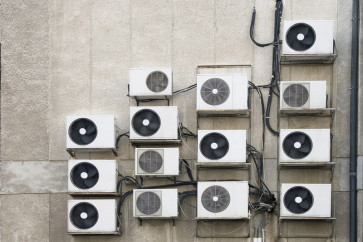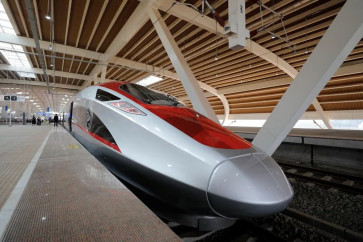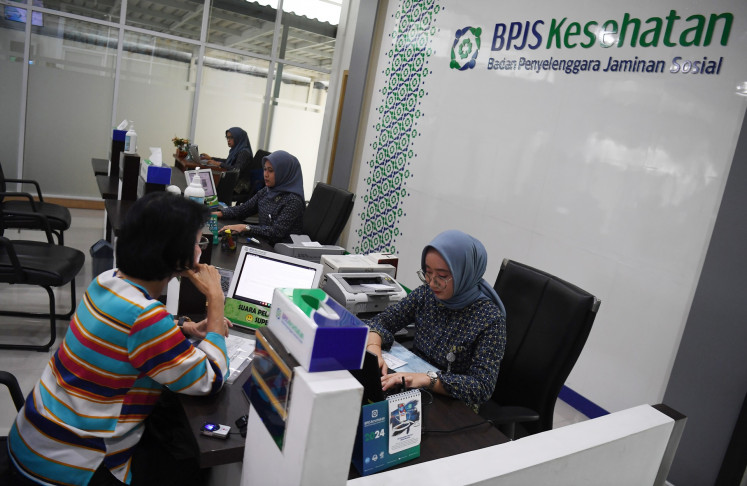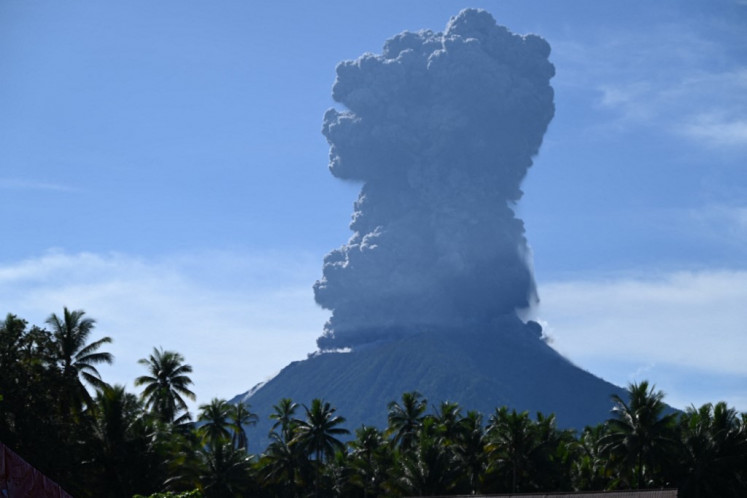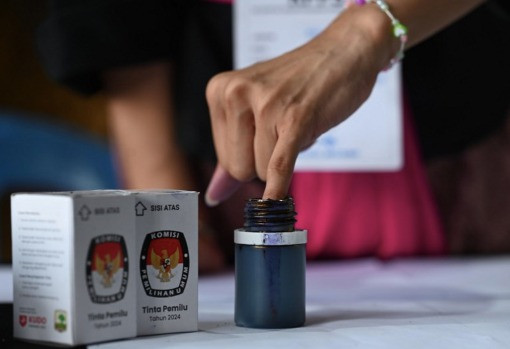Rising LPG subsidies could pressure state budget: LIPI
The government has saved more than Rp 200 trillion (US$14
Change Size

T
he government has saved more than Rp 200 trillion (US$14.97 billion) in the state budget by cutting fuel subsidies, but could face pressure from the growing amount of subsidies for liquefied petroleum gas (LPG), according to a research center.
In the current state budget, the subsidy for LPG is set at Rp 28.27 trillion for 5.77 million tons of LPG this year. The subsidized volume increased from last year's 4.99 million tons.
'Whether the subsidy for LPG continues will be the center of attention [in subsidy policy]. Imports of LPG are growing now and we mustn't ignore that,' said Indonesian Institute of Sciences (LIPI) researcher Maxensius Tri Sambodo.
Domestic LPG production can no longer meet demand. State-owned Pertamina, which is authorized by the government to distribute the 3-kilogram canister subsidized LPG, has said that imports of LPG will likely touch 3.6 million tons this year, 600,000 tons more than last year on rising demand.
Earlier this year, the government implemented a new energy policy in which subsidies for Premium gasoline were scrapped, granting more fiscal room in the budget. However, the country continues to subsidize several products, including kerosene, diesel at a fixed subsidy of Rp 1,000 per liter and LPG.
The price of Premium gasoline is now adjusted regularly by the government in line with global prices. However, citing efforts to maintain people's purchasing power, the government has set the current price below the actual price, leaving Pertamina to make up the gap.
'That is also a problem. The government has to think of the company's downstream business so that it will be able to maintain its financial capacity to fund exploration works in the upstream oil and gas sector,' Maxensius said.
Indonesia has been struggling with declining oil production, and many of its oil fields are depleted. Critics have called on the government to boost exploration works so that more hydrocarbon can be secured for future use. However, exploration activities have been declining in the past years, partly due to the red tape faced by oil contractors.
Energy and Mineral Resources Minister Sudirman Said stated earlier that the government was currently working on a scheme to determine the upper and lower limits of gasoline prices.
Under the plan, when world oil prices decline and force the actual price of gasoline below the lower limit, the government will only adjust the price as far as the lower limit, using the gap between the actual price and the lower limit as a saving.
'The saving will be used to close the gap when the actual price is far higher than the upper limit we set. Thus, people won't suffer too much when the price goes up,' Sudirman said.
Apart from policy on gasoline and LPG, Maxensius also pointed to concerns on planned incentives to boost biofuel usage.
As part of attempts to reduce the consumption of fossil fuel, the government requires that diesel be blended with biofuel, which is usually made of crude palm oil (CPO). This year, the government is planning to require a 15 percent mix of biocontent to be blended into diesel fuel. There is a plan to establish a supporting fund that will collect levies from CPO producers, which will then be used to compensate the price difference between regular diesel and biodiesel as well as for research and development within the palm oil industry.
'We have to be careful about giving incentives because our biofuel industry is dominated by several big corporations. Therefore, incentives must be applied carefully so that support doesn't go only to big capitalists,' Maxensius said.

